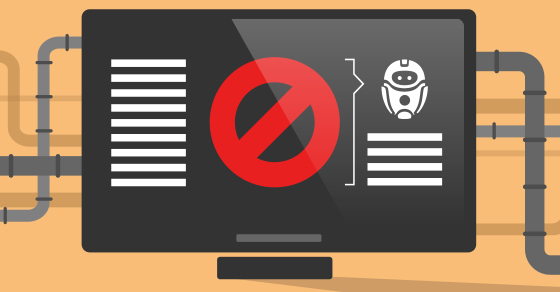|
|
According to Ecclesiastes, there’s nothing new under the sun. That thought certainly hits home when you’re trying to come up with an idea for the next must-have WordPress plugin. With over 60,000 (free) plugins already in existence, it’s easy to feel like all the good ideas have already been taken.
Don’t despair, though — you know what else ol’ Ecclesiastes says? “What has been will be again; what has been done will be done again”. Find inspiration instead of discouragement in these timeless words. You’ve had great ideas before, and you will have them again!
In this article, we’ll share how you can generate ideas for in-demand new plugins by setting goals, focusing on trends, examining how existing solutions can be improved, and reflecting on your own experiences.
Let’s get going!
Think About What You’d Like to Achieve and Set Goals to Get There
We all want the same thing when we sit down to create a plugin: unheard-of success and piles of praise and riches.

Savvy developers who build a career out of creating new technology know that the success of a product doesn’t begin and end with an ingenious idea. In reality, the initial idea is just a small part of the process.
Before you try to imagine what you want to create, think about what you want to achieve.
It’s safe to assume that most developers want to create a popular plugin that generates a healthy number of sales. Alongside that obvious goal, you may also want to challenge yourself technically and create something novel that you can be proud of. Or maybe service a large yet niche market by creating something truly innovative that solves a very specific pain point.
Begin by writing down the personal goals that will make creating your new plugin personally fulfilling. By starting with the goal of developing something that can give you a true sense of accomplishment, you ensure you’ll be dedicated to and passionate about seeing the project through to completion and ready to do your best work.
The success of your plugin doesn’t come from thinking up a great idea. It comes from following through with the entire process. Brainstorming is an important first step, so let’s get to all the ways you can find inspiration.
Research Current Trends to Help you Generate New Plugin Ideas
Make sure you’re regularly immersing yourself in the culture of your audience and potential clients by following popular tech blogs. For example:
- Mashable
- Gizmodo
- GigaOM
- ZDNet
- TechCrunch
- How-To Geek
- The Next Web and more.

From news on cybersecurity and AI to blog tips on SEO and caching, tech stories reflect what’s on users’ minds and tells you what might be a priority in the future. This research is essential in keeping you up-to-date with trends and helping you think like your end user.
Have a look at currently popular plugins and examine what they’re trying to achieve. For example, spam-reduction plugins offer increased security and more trustworthy, authentic content. SEO plugins help users find an audience.
Are there other ways that you could help users achieve these basic goals?
Always keep an eye on emerging technology. Use Alexa often to see what users are researching, reading, and watching online and to monitor which new sites and services are growing in popularity.
When you examine popular plugins, you can often trace their origins back to a role in making new technology more easily adaptable.

For example, the increased popularity of smartphones and tablets resulted in plugins to help format WordPress content especially for mobile. Facebook gave rise to the increased popularity of social sharing plugins. X helped created a demand for link-shorteners. Demand for on-site review solutions led to the creation of our very own Rating-Widget plugin.
Ask yourself what new service is currently emerging and what kinds of plugins you could create to make that service easier for users.
At the same time that you’re dreaming about piggybacking on the next X, it’s crucial that you realistically evaluate potential market share. If you think that your plugin will only be valuable to 100 people, developing a commercial plugin is likely to be a waste of time.
By staying in touch with tech news, you’ll be better able to tell the next Periscope from the next Meerkat and make sure you’re backing the right horse.
Research Existing Products to See How They Can Be Improved
The WordPress.com ideas forum should be your online second home. Get comfy here and hang out to find what users want, what they value, and what isn’t currently working for them.
This type of info can spark an idea for a related plugin and help you better understand the goals of users. Keep your users in mind and you’ll be ready to design a new plugin to help them meet their goals.
You’ll also find inspiration by analyzing what’s currently at the top of WordPress’ popular plugin directory. Read the plugin reviews to learn where users are having trouble with existing products. Is there a way that you can design a fix for these in your new plugin?
Even if you don’t agree with users’ evaluation of these plugins, you’ll be in a better position to understand how they use the plugin, what they expect from it and where it falls short.
And here’s an example. Superhuman is not just another email client that resembles Gmail. It was actually built with the goal to overcome the biggest flaw Gmail had — slowness.
Rahul Vohra, Superhuman CEO and founder, focused on providing more speed, shortcuts, and automation — everything people complained about Gmail lacking. Listening to Gmail users (and being one himself!) helped him identify product gaps and find a perfect, new market fit for those who wanted to take their productivity to the next level.
By researching the existing solutions and monitoring what users are saying about it, you can uncover missing features or ones that can be improved — and give your potential customers exactly what they’re asking for.
Research Underserved Niches
When we think of niches, it’s easy to focus on the big fish in the pond – e-commerce, blogging, and corporate websites. But there’s a whole ocean of smaller, specialized markets waiting for your attention — and they may be underserved.
For example, ever noticed how niche markets, like pet grooming salons or independent bookshops, often struggle with generic plugins that don’t quite fit their needs? That’s your opportunity. Look for industries with specific requirements that current plugins don’t fully address.
Consider the booming market of online education. While there are plenty of Learning Management Systems (LMS) plugins, what about niche features like gamified quizzes or integrations with lesser-known webinar platforms? Tapping into these areas can lead to plugin ideas that stand out and fulfill specific user needs.
Like we mentioned above, join forums and communities related to these niches. Sites like Reddit and LinkedIn or Facebook groups can provide lots of insights into what these markets need but aren’t getting.
For instance, ButterDocs took on an industry leader by identifying what a specific group of users believes is not working in the solution that’s currently dominating the market.
The ButterDocs team created a writing tool specifically for (content) writers and teams. This platform makes collaborating and feedback easier, removes distractions, and keeps resources, notes, and comments handy — all things that GoogleDocs users flagged as something they wish their writing tools had.
Rely on Your Own Experience As a WordPress User and Developer
As well as learning as much as possible about how others use WordPress, it’s important to pay attention to how you work with WordPress yourself. What aspects of functionality, no matter how small, do you find lacking?

If you find something that you personally would like to see improved or simplified, it’s likely that others feel the same way. Necessity is the mother of invention.
If you freelance or consult and notice you’re getting the same request twice or more, it’s time to look into how you can address it. Hints at what users want can come from anywhere. Try to train yourself to tune into these clues in your daily activities online, in your communications with friends and in your work.
Tools & Resources to Help You Brainstorm Ideas
Not sure where to begin? Sometimes, all you need is the right tool to get your creative juices flowing. Here’s a list of resources that can help you brainstorm, research, and develop your plugin ideas effectively.
MindMeister
A powerful mind-mapping tool where you can organize your thoughts and visualize your brainstorming sessions. It’s ideal for mapping out complex plugin ideas and seeing how different components fit together! The tool also makes it easy to brainstorm with team members in real time, even if they’re halfway around the world.
For example, you can use it to create a visual map of a new plugin idea, outlining features, user flows, and potential challenges. This can help you see the big picture and ensure all aspects are covered.
Google Trends
This tool lets you stay ahead of the curve by tracking search trends and identify what topics are gaining traction and where there might be a demand for new plugins. Understanding search trends helps you align your plugin development with what users are actively looking for, increasing your chances of success.
You can use it, for instance, to research keywords related to your plugin ideas and see how interest has evolved over time. This can validate the potential popularity of your plugin.
WPBeginner’s Plugin Ideas Blog
Similarly to the WordPress Ideas Subforum, this blog is regularly updated with new plugin ideas and market gaps. It’s a great resource for staying updated with industry discussions that help you keep your finger on the pulse of the WordPress community and spot emerging trends.
To draw inspiration from this blog, read through the latest posts to see if any of the discussed gaps align with your skills and interests. Use these insights to brainstorm potential plugin features or niches.
GitHub
With GitHub, you can explore many open-source projects and see what other developers are working on. This is a goldmine for finding inspiration and contributing to existing projects, as it allows you to learn from others, share your own projects, and collaborate with a global community.
Browse popular repositories in the WordPress category to see what’s trending, fork projects to experiment with new ideas, or contribute to existing ones to gain insights and experience.
Stack Overflow
You already know Stack Overflow — it’s a Q&A-style website that lets you see what challenges other developers are facing and what solutions they are seeking. Monitor discussions and threads related to WordPress development. Common questions and problems can inspire new plugin ideas aimed at solving these issues.
Regularly using these platforms and tools will keep you informed about industry trends, user needs, and emerging technologies, positioning you to create innovative and in-demand WordPress plugins and generate, validate, and refine your ideas more effectively.
There Are Many Great Plugin Ideas Just Waiting to Be Developed
Great ideas for new WordPress Plugins are everywhere, and once you get into the habit of looking for them, you’ll find they are there for the taking.
You can discover ideas by analyzing trends, researching what users want, relying on your experience, and building on the success of existing plugins. Remember to focus on ideas that work for you in terms of your personal goals so you’ll be sure to complete them to the best of your ability.
Once you’ve turned your amazing plugin idea into an actual product, it’s time to get your business off the ground.








Great article. Worth reading. To find real world WordPress problems and develop plugins to fix them, freelance platforms (Upwork, Elance etc) are also a good source. In my personal experience, many clients share come there with WordPress problems and they ask to build custom solutions for them. Those ideas can also be used to build new plugins.
Hi Muhammad,
Thanks!
I hadn't thought of that, but it does sound like a good way to come up with ideas. Great suggestion!
Cheers,
Tom
I've found my best plugin ideas have come from developing websites. Needing certain functionality and either deciding to do it myself instead of using an existing one, or not finding exactly what I'm looking for
If you're looking for a good place to analyse trending and popular plugins, ManageWP have a great section here: https://managewp.org/plugins/
Great post with solid ideas. We've been considering building out some WP plugins to expand our current digital marketing agency into related areas, and this post does a great job of summing up where to start and how to approach it. Keep up the great work!